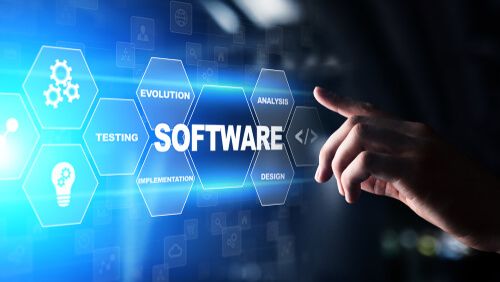In today’s digital economy, the backbone of any business is a sound accounting system. But it’s not easy to find the right accounting software that fits your needs. As a business owner, you’re tasked with a variety of responsibilities that essentially includes keeping your company’s finances in order. The safety and security of your financial data can be a challenge. For the same reason, businesses are hesitant to entrust their online accounting needs to cloud hosting providers. However, it may sound surprising to know that a web-based accounting solution can be more effective than a privately owned and maintained accounting system.
Using a great accounting software, you can ensure your financial records are protected from malicious attacks. This can help you manage your money and provide you with a sense of security and safety, knowing your financial future is on track.
This article will take a deeper look at how accounting software helps financial security and safety.
Before moving forward, let’s dive into the three primary financial data security threats that must be considered:
1. Protection against natural events
Natural disasters are unpredictable events that can make financial information vulnerable. Securing data through cloud storage or efficient backup services is a quick solution. This is a great way to secure your data.
2. Protection against external threats
This refers to protection against hackers attempting to hack into your system and get access to your financial data. To maintain the integrity of your financial data when you connect it with other apps, you need a robust and secure Application Programming Interface (API).
3. Protection against internal threats
This is a second and usually more robust layer of defense designed to keep you safe from external and internal threats. For example, suppose an outside threat manages to get past firewalls and encryptions. In that case, they’ll have to deal with passwords, permissions, and user hierarchy set by the users of that data across the organization.
Now let’s have a look at how accounting software can help your organization build a defense against the threats mentioned above and offer financial security:
1. User permissions
When managing user permissions, accounting software makes it easy for users to set their roles and access rights for different data types. It also provides granular controls to manage access to each file and folder. This helps maintain data integrity and prevents the users from making changes they shouldn’t. You can also ensure that users only access the data they require.
2. Two-factor authentication
Accounting software enables two-factor authentication. These are codes or one-time passwords that are valid for a specific period and are prompted every time to try to login into your account. This helps prevent unauthorized access to your system and helps maintain the integrity of your data.
3. Encryption
Accounting software provides you with the option to encrypt your data. This helps protect your data from malicious attacks, ensures that your data is secure, helps back up your data, and gives access from anywhere at any time. Connecting your system to a cloud storage provider, which will help you keep your data safe is an additional benefit that comes along the way.
3. Audit Trails functionality
An audit trail allows you to follow changes throughout the financial reconciliation process to keep correct, up-to-date information. This will enable you to see who is responsible for what in the accounting records, project accounting, and other aspects of the accounting process. An audit trail also provides a record of all the transactions that have taken place in your system that can help in giving a course of evidence in case of any disputes or fraud.
4. Set workflow rules
The workflow rules allow you to set up automated processes followed when certain events occur. For example, if a certain amount of money has been transferred from your bank account, you can have the transfer automatically posted to your bank account with the help of your accounting software. It helps you save time and ensure that your business operates at peak efficiency.
5. encrypted emails
Accounting software can help you send confidential emails to your clients. This allows you to protect the content of your email that includes sensitive financial data through end-to-end encryption and password verification process. This also helps verify the sender’s identity and ensure that the emails are secure.
6. Approval process
The automated approvals allow you to set up rules for certain transactions or events. You can automate selected processes or activities that require an appropriate signoff on a record to verify the accuracy. The signoff can be shared with the desired authority to confirm that data is accurate and safe and that the current process is running smoothly. It helps you save time and ensure that your business operates at peak efficiency.
7. User hierarchy
Accounting software allows you to set up user hierarchies when managing users and roles. This will enable you to assign specific users with specific permissions for accessing different types of data. For example, setting up a user hierarchy allows you to control which users can read or update detailed accounts or records in the system, such as reports. In addition, users’ access to opportunities, cases, and connections is determined by their roles.
Summing up
With all of these valuable capabilities, online accounting software is ideal for keeping your company’s data safe and your system back in operation whenever you need it. It’s the best choice for organizations that seek a full bandwagon to jump their day-to-day operations. It has enhanced security features that help you safeguard your data from all forms of attacks, in addition to its fundamental functionality. In addition, it is a cost-effective option that provides business-grade performance while also being simple to use.
As you can see, the features listed above ensure that your data is protected when utilizing cloud-based accounting software. In addition, they assist you in avoiding data loss and system downtime due to system breakdown.









![Anso FG Reviews: UPDATED 2024 [ansofg.com] Anso FG Reviews UPDATED 2024 [ansofg.com]](/wp-content/uploads/2023/12/Anso-FG-Reviews-UPDATED-2024-ansofg.com_-100x70.png)








